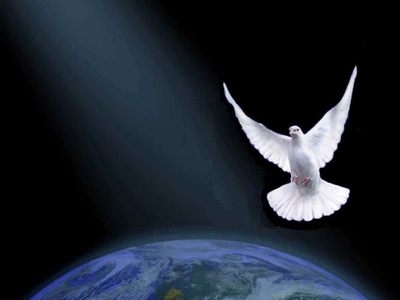Initially my plan in interviewing Penny Rosenwasser, a founding board member of Jewish Voice for Peace, was to highlight the work of JVP.
But I got more than I bargained for. Not only did I end up with a detailed understanding of JVP, but I received a courageous story of how an insecure young Jewish girl became a national and international peace figure, celebrated for her activism, of which JVP is just one component.
Penny grew up in the 1950’s in a largely white Christian suburban community, leaving her confused about her Jewish identity. In 1982, after reading “Nice Jewish Girls,” stories of women who were both lesbian and Jewish, a light bulb went off. Penny recognized herself in these stories.
A few years later Penny attended a play where a dance group enacted a letter written by a Jewish nurse caring for children who were dying after the massacre at Sabra & Shaila Refugee Camp–a massacre Israeli soldiers allowed to happen.
Sobbing, Penny realized, “I have to face whatever the state of Israel is doing–and also believe I can still feel good about being Jewish.”
That’s when Penny decided she had to go to Palestine. She contacted the Middle East Children’s Alliance for contacts in Israel and Palestine. Her suitcase included a tape recorder and microphone (borrowed from her job as a radio producer). Penny divided her three-week stint between Palestinian and Israeli families, enjoying warm hospitality while collecting women’s stories.

Penny, on the right, with Valerie and Noam Chomsky at an Oakland event Penny produced for the Middle East Children’s Alliance
During this visit Penny joined 2,000 Israeli and Palestinian women in a demonstration calling for peace between Israel and Palestine. Joining hands, the throng of women surrounded Jerusalem while Tracy Chapman’s music blasted among a festive display of flowers and colorful banners. The peaceful protest was interrupted by young Israeli soldiers who began beating the Palestinian women. Horrified and shocked, Penny asked herself, “Why is my government supporting this?”
Back home, Penny was determined to raise awareness of what life was really like for women in both Israel and Palestine. She compiled her tapes into a radio broadcast, whose edited version became Penny’s first book, “Voices from a Promised Land: Palestinian and Israeli Peace Activists Speak Their Hearts.”
Penny would make more trips to Palestine, spurred on by Palestinian women’s response to Penny’s question, ‘What can the US do to help?” The answer she received, “Bring women back to witness what is happening.”
Following up on this request, Penny brought 18 women of both Israeli and Arab backgrounds to Israel-Palestine. The trip was so successful in raising awareness that every woman on the trip became an activist.
In 1996 Jewish Voice for Peace was formed in Penny’s Bay Area community when three students from UC Berkeley, along with a progressive rabbi, organized a rally calling on the US government to adopt more progressive policies towards Israel-Palestine. Penny was moved by their mission, joined in their actions, helped JVP build its infrastructure, and joined the board in 2002.
JVP’s membership has grown with each Israeli assault on Gaza, Penny reflects, “As more and more Jews learn about the Israeli bombings and treatment of Palestinians, their eyes are opened. . . They don’t want to be identified with what Israel is doing in the name of Jews.”
Presently JVP has two major focuses: to fight AIPAC (American Israel Public Affairs Committee) which has pledged $100 million to defeat progressive candidates critical of Israel.
Their second focus is on educating people against buying Israel bonds, often given as wedding or birthday presents. Bond money goes directly to Israel’s government. Last year these bonds netted $100 million for the Israeli government. JVP maintains that when you buy a bond you are complicit in funding the Israeli military.
Given the spiking genocide in Gaza, I asked Penny what gives her hope. She lit up and answered, “The students and their encampments,” noting the recent graduation ceremony at her alma mater, Denison College, where students for Palestinian Rights, when handed their diplomas, presented the President with a red poppy, symbolic of Gaza.
Penny tries to live by the saying, “You’re not responsible for completing the work in your lifetime, but you can’t refuse to do your unique part.”





